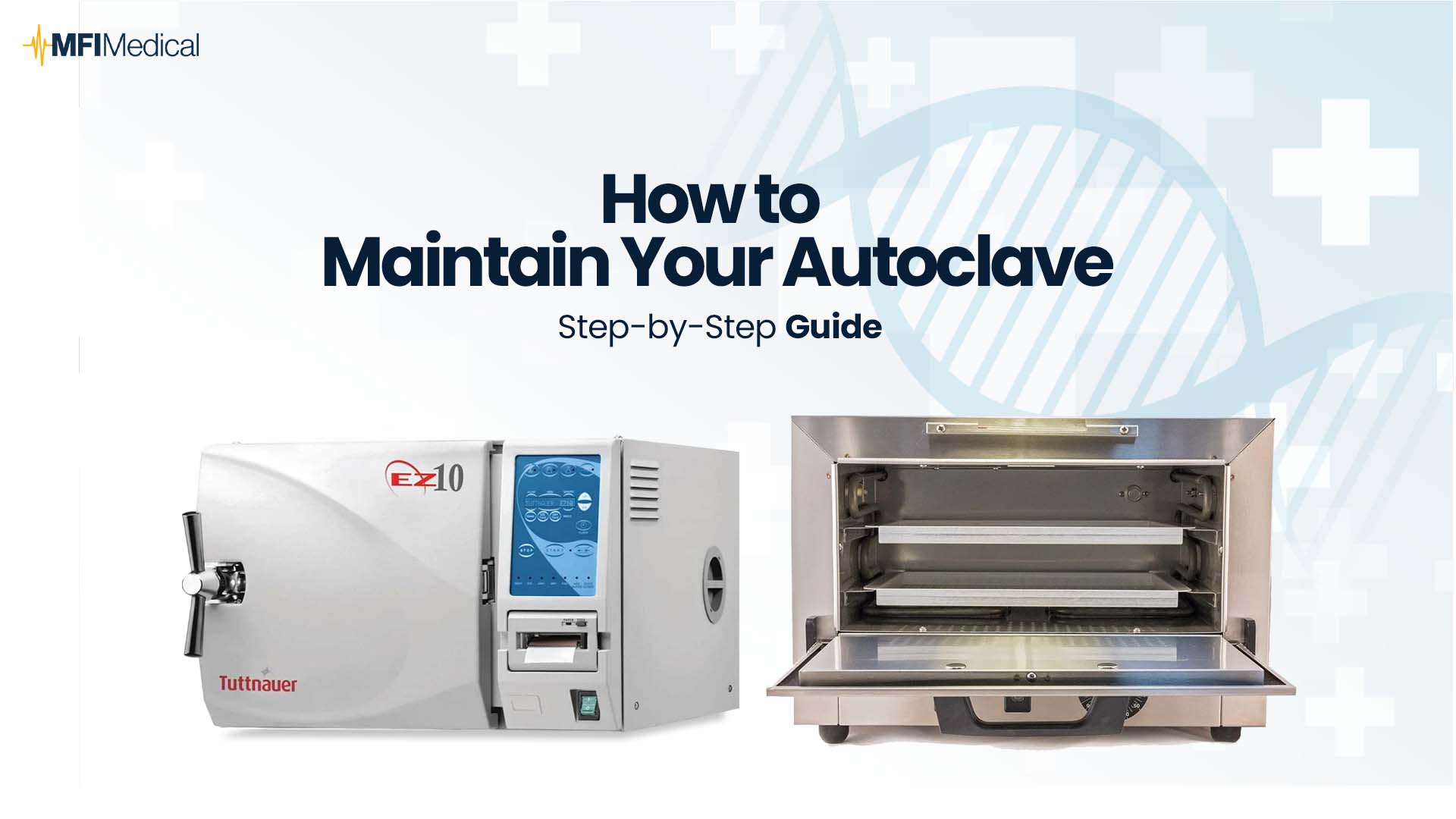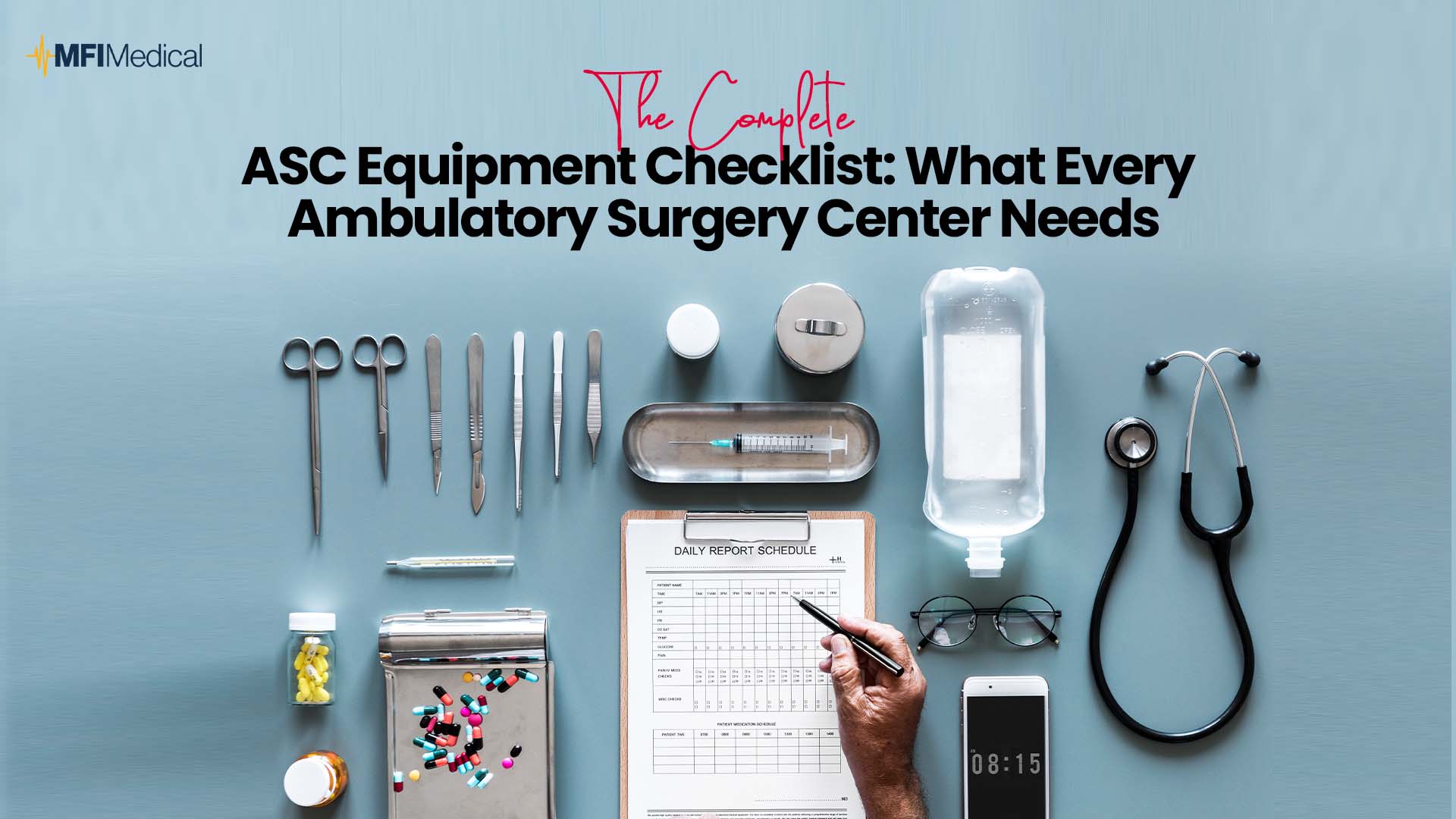Autoclaves are the backbone of infection control in medical clinics, dental practices, and laboratories. By using high-pressure steam, they eliminate harmful microorganisms and ensure instruments are safe for use.
But even the most advanced autoclave sterilizers require proper care. A single overlooked cleaning cycle or worn-out gasket can compromise sterilization, delay procedures, or even put patient safety at risk.
That’s why autoclave maintenance isn’t just a recommendation—it’s essential.
In this guide, we’ll walk you through daily, weekly, monthly, and long-term maintenance steps to keep your sterilizer running at peak performance.
Why Autoclave Maintenance Matters

-
Consistent Sterilization: Regular cleaning prevents residue buildup, ensuring every instrument is thoroughly sterilized.
-
Compliance: Stay aligned with CDC, OSHA, and manufacturer guidelines for safe and reliable operation.
-
Equipment Longevity: Prevent costly repairs and extend your autoclave’s life by addressing small issues before they escalate.
-
Reduced Downtime: A well-maintained unit means fewer interruptions, keeping your practice or lab running smoothly.
Daily Autoclave Maintenance
Clean the Chamber
After the last cycle of the day, wipe the chamber with a soft cloth and mild detergent. This prevents residue from hardening. Avoid using abrasive pads or harsh chemicals, as they can damage the chamber lining.
Empty and Clean the Drain
Residue in the drain can restrict steam flow. Flush with clean water daily (or as recommended by your manufacturer) to prevent blockages.
Inspect the Door Gasket
A cracked or dry gasket can cause steam leaks, leading to incomplete sterilization. Wipe it with a damp cloth and check for wear.
Weekly Maintenance Tasks
Clean Trays and Racks
Remove, soak in mild detergent, rinse thoroughly, and dry. Clean trays prevent cross-contamination inside the chamber.
Inspect the Water Reservoir
Check for discoloration or debris. Drain and refill using only distilled water to avoid damaging mineral buildup.
Monthly Maintenance
Run a Chamber Cleaning Cycle
Use a manufacturer-approved autoclave cleaner or descaler to dissolve mineral deposits and remove internal residue.
Check Air Filters (if applicable)
Some autoclaves have air filters that need cleaning or replacement. Follow your model’s manual for specifics.
Quarterly or Bi-Annual Maintenance
Certified Technician Inspection
A professional should check calibration, pressure seals, and electrical systems. This ensures your autoclave meets regulatory standards.
Replace Gaskets and Filters
Even if they look fine, replacing these parts every 6–12 months guarantees an airtight sterilization process.
Autoclave Maintenance Best Practices
-
Always use distilled water—tap water leads to corrosion and mineral buildup.
-
Keep a maintenance log to track cleaning, inspections, and part replacements.
-
Stick to manufacturer-approved products for cleaning and replacement parts.
-
Train staff on proper loading techniques to prevent overfilling and uneven sterilization cycles.
-
Avoid skipping small checks—minor neglect can turn into major breakdowns.
Need Autoclave Supplies or Replacement Parts?
Whether you’re running a busy dental office, a hospital sterilization unit, or a small research lab, having the right supplies on hand prevents downtime and keeps your equipment compliant.
MFI Medical carries a full range of autoclaves, replacement parts, chamber cleaners, and accessories from trusted brands like Tuttnauer, Midmark, and SciCan. Our experts can help you choose the right solution for your practice.
📞 Call us at (800) 633-1558 or email support@mfimedical.com for personalized support.
Shop Autoclave Maintenance Supplies
Frequently Asked Questions
Q: How often should I deep clean my autoclave?
A: At least once a month, though high-use facilities may need more frequent cleaning cycles.
Q: Can I use tap water in my autoclave?
A: No. Always use distilled water. Minerals in tap water damage the chamber and shorten your autoclave’s lifespan.
Q: When should I replace the door gasket?
A: Every 6–12 months, even if it looks intact, to maintain a proper seal.
Q: Do all autoclaves need filter changes?
A: Not all models have filters, but if yours does, check and replace them according to the manufacturer’s recommendations.




